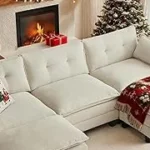Introduction:
Have you ever wondered why caskets can be so expensive? It’s a question that many people have asked, as the cost of saying goodbye to a loved one can often be a financial burden. In this article, we will explore the factors that contribute to the high price of caskets and shed light on why they can be so costly. So, let’s dive in and uncover the reasons behind the expense of these final resting places.
Why are caskets so expensive?
There are several factors that contribute to the high cost of caskets. Firstly, the materials used in the construction of caskets can significantly impact their price. Many caskets are made from high-quality materials such as solid wood, metal, or even precious metals like bronze or copper. These materials are not only durable but also aesthetically pleasing, which adds to their cost. Additionally, the craftsmanship involved in creating a casket also plays a role in its price. Skilled artisans spend hours meticulously crafting and finishing each casket, ensuring that it meets the highest quality standards.
Furthermore, the cost of caskets also includes the overhead expenses incurred by funeral homes and casket manufacturers. Funeral homes must cover expenses such as staff salaries, facility maintenance, and other operational costs. These costs are factored into the price of caskets to ensure the funeral home can continue providing their services. Additionally, casket manufacturers have their own expenses, including raw materials, labor, and equipment, which also contribute to the overall cost.
What are the different types of materials used in caskets?
Caskets can be made from a variety of materials, each with its own unique characteristics and price points. Some common materials used in casket construction include:
1. Wood: Solid wood caskets, such as mahogany, cherry, or oak, are known for their elegance and durability. The cost of a wooden casket can vary depending on the type of wood used and the craftsmanship involved in its construction.
2. Metal: Metal caskets are often constructed from materials such as steel, bronze, or copper. These caskets offer durability and can be customized with various finishes and designs. Metal caskets tend to be more expensive compared to wooden ones.
3. Fiberglass: Fiberglass caskets are lightweight, durable, and resistant to corrosion. They are often chosen for their affordability and versatility.
4. Eco-friendly materials: With the growing demand for environmentally friendly options, casket manufacturers are offering alternatives made from biodegradable materials such as bamboo, willow, or seagrass.
What is the role of craftsmanship in casket prices?
The level of craftsmanship involved in creating a casket can greatly impact its price. Skilled artisans spend countless hours meticulously crafting and finishing each casket to ensure it meets the highest quality standards. This attention to detail and dedication to craftsmanship often results in higher prices.
Highly skilled artisans possess the expertise to create intricate designs, ornate carvings, and decorative elements that enhance the overall aesthetic appeal of the casket. This craftsmanship adds value to the final product and justifies the higher price tag. Additionally, the quality of the materials used and the precision in their assembly contribute to the overall craftsmanship of the casket.
How do funeral home expenses affect casket prices?
The expenses incurred by funeral homes have an impact on the price of caskets. Funeral homes have various overhead costs that need to be covered, including staff salaries, facility maintenance, administrative expenses, and other operational costs. These expenses are factored into the pricing of funeral services, including caskets, to ensure the funeral home can continue providing their services.
Funeral homes also need to invest in equipment, such as embalming facilities and viewing rooms, that contribute to the overall cost structure. Additionally, funeral homes often offer additional services such as transportation, storage, and coordination of the funeral arrangements, which are also included in the overall cost. All these factors, combined with the need to generate revenue to sustain the funeral home, contribute to the pricing of caskets.
What are the options for affordable caskets?
For those seeking affordable casket options, several alternatives are available. These options can help reduce costs without compromising on quality or the dignity of the deceased. Some affordable casket options include:
1. Basic or minimalistic caskets: These caskets are simpler in design and made from less expensive materials, such as basic wood or metal, while still providing a dignified final resting place.
2. Rental caskets: Funeral homes may offer the option to rent a casket for the funeral service. The outer shell of the casket is used for the viewing, while the actual deceased is placed inside a separate container.
3. Casket alternatives: There are alternative options available, such as shrouds, eco-friendly caskets made from biodegradable materials, or even DIY caskets that can be personalized and constructed by the family.
4. Online purchasing: Some online retailers offer a wide range of caskets at more affordable prices compared to traditional brick-and-mortar stores. This can provide a cost-effective option for those looking to manage funeral expenses.
Are caskets made of precious metals worth the price?
Caskets made of precious metals, such as bronze or copper, are often more expensive due to the inherent value of these materials. The price of these caskets is influenced by factors such as the current market price of the metal, the weight of the casket, and the craftsmanship involved.
While the cost may be higher, precious metal caskets are often chosen for their aesthetic appeal and durability. These materials are known for their longevity and resistance to corrosion, ensuring that the casket will maintain its integrity over time. Additionally, caskets made of precious metals can be personalized with various finishes and designs, offering a unique tribute to the deceased.
What are alternative burial options to traditional caskets?
Alternative burial options provide alternatives to traditional caskets for those seeking different methods of interment. Some alternative burial options include:
1. Cremation: Cremation is a popular alternative to traditional burial. After cremation, the remains can be placed in an urn or scattered in a location of significance to the deceased or their family.
2. Natural burial: Natural burial is an environmentally friendly option that involves burying the deceased in a biodegradable casket or shroud. This allows for a more natural decomposition process and reduces the environmental impact compared to traditional burial methods.
3. Body donation: Some individuals choose to donate their bodies to medical schools or research institutions for scientific study. This option allows for the body to be utilized for educational purposes rather than traditional burial or cremation.
4. Above-ground burial: Mausoleums and crypts provide above-ground burial options. These structures can house caskets or cremated remains, offering a unique and lasting tribute to the deceased.
How can I save money on a casket?
There are several ways to save money on a casket without compromising on quality or the dignity of the deceased. Consider the following tips:
1. Shop around: Compare prices from various funeral homes and casket retailers to find the best deal. Online retailers may offer more affordable options compared to traditional brick-and-mortar stores.
2. Choose simpler designs: Opt for basic or minimalistic caskets that are simpler in design and made from less expensive materials. These caskets can still provide a dignified final resting place.
3. Consider rental options: Some funeral homes offer the option to rent a casket for the funeral service, using an outer shell for the viewing while the deceased is placed inside a separate container.
4. Explore alternative options: Look into alternative burial options such as shrouds, eco-friendly caskets made from biodegradable materials, or even DIY caskets that can be personalized and constructed by the family.
5. Understand your rights: Familiarize yourself with the Federal Trade Commission’s Funeral Rule, which provides consumer rights and protections when purchasing funeral products, including caskets.
Why do caskets vary in price?
Caskets vary in price due to several factors, including the materials used, the level of craftsmanship involved, and the overhead expenses incurred by funeral homes and casket manufacturers. The cost of materials, such as solid wood or precious metals, can significantly impact the price. Additionally, the level of craftsmanship and the quality of the materials used contribute to the overall value of the casket.
The expenses incurred by funeral homes, such as staff salaries, facility maintenance, and operational costs, are also included in the price of caskets. Similarly, casket manufacturers have their own expenses, including raw materials, labor, and equipment, which contribute to the overall cost. These factors, combined with the need to generate revenue to sustain the business, result in a wide range of prices for caskets.
Why are wooden caskets more expensive than metal caskets?
Wooden caskets are often more expensive than metal caskets due to several reasons. Firstly, the cost of the raw materials used in wooden caskets, such as solid wood like mahogany or oak, can be higher compared to metal materials. The sourcing and processing of high-quality wood contribute to the overall cost.
Secondly, the craftsmanship involved in creating wooden caskets is often more intricate and time-consuming compared to metal caskets. Skilled artisans spend hours meticulously crafting and finishing each wooden casket, ensuring that the wood is shaped and polished to perfection. This level of craftsmanship adds to the overall cost.
Lastly, the aesthetic appeal and perception of luxury associated with wooden caskets can also contribute to their higher price. Wooden caskets are often seen as more traditional and elegant, which can influence their market value. Metal caskets, on the other hand, are often associated with a more modern and utilitarian aesthetic, resulting in different price points.
What are the benefits of choosing a metal casket?
Choosing a metal casket offers several benefits. Firstly, metal caskets are known for their durability and strength. They provide a sturdy and secure final resting place for the deceased, ensuring the casket maintains its integrity over time.
Metal caskets also offer a wide range of customization options. They can be personalized with various finishes, designs, and decorative elements. This allows families to create a unique tribute to their loved one, reflecting their personality and preferences.
Additionally, metal caskets are often more resistant to the elements and corrosion compared to other materials. This ensures that the casket remains intact and protects the deceased in various burial conditions.
What is the average price range for caskets?
The average price range for caskets can vary depending on several factors, including the materials used, the level of craftsmanship, and the overall design. On average, caskets can range from several hundred dollars to several thousand dollars.
Basic caskets made from less expensive materials, such as basic wood or metal, tend to be on the lower end of the price range. On the other hand, caskets made from high-quality materials, such as solid wood or precious metals, and those with intricate designs or finishes, can be on the higher end of the price range.
It is important to note that funeral homes are required by law to provide a price list for caskets and other funeral services, allowing consumers to compare prices and make informed decisions.
What are the benefits of choosing a wooden casket?
Choosing a wooden casket offers several benefits. Firstly, wooden caskets are often seen as more traditional and elegant. They provide a warm and timeless aesthetic, creating a dignified and comforting final resting place for the deceased.
Wooden caskets also offer a wide range of customization options. Different types of wood, such as mahogany, cherry, or oak, can be selected to create a personalized and unique tribute to the deceased. The wood can be finished and polished to enhance its natural beauty, adding to the overall appeal of the casket.
Furthermore, wood is a natural and biodegradable material, making wooden caskets an environmentally friendly choice. This can be important to individuals or families who prioritize sustainability and reducing their carbon footprint.
What are the factors that contribute to the high cost of caskets?
Several factors contribute to the high cost of caskets. Firstly, the materials used in the construction of caskets can significantly impact their price. High-quality materials, such as solid wood, metal, or precious metals like bronze or copper, are often more expensive due to their durability and aesthetic appeal.
The level of craftsmanship involved in creating a casket also plays a role in its price. Skilled artisans spend hours meticulously crafting and finishing each casket, ensuring it meets the highest quality standards. This level of craftsmanship adds value to the final product and justifies the higher price tag.
Additionally, the cost of caskets includes the overhead expenses incurred by funeral homes and casket manufacturers. Funeral homes must cover expenses such as staff salaries, facility maintenance, and other operational costs. Similarly, casket manufacturers have their own expenses, including raw materials, labor, and equipment, which contribute to the overall cost.
Why are caskets made of solid wood more expensive than those made of composite wood?
Caskets made of solid wood are generally more expensive than those made of composite wood due to several factors. Firstly, solid wood is often considered a higher-quality material compared to composite wood. Solid wood caskets are crafted from a single piece of wood, which adds to their durability and aesthetic appeal.
Composite wood, on the other hand, is made from wood particles bonded together with adhesives. While composite wood caskets can still provide a dignified final resting place, they are generally less expensive due to the lower cost of materials and the manufacturing process.
Additionally, solid wood caskets often require more labor and time to construct compared to composite wood caskets. Skilled artisans carefully select the wood and craft the casket, ensuring its structural integrity and finishing details. The level of craftsmanship involved in creating solid wood caskets contributes to their higher price.
What are the benefits of choosing an eco-friendly casket?
Choosing an eco-friendly casket offers several benefits for individuals or families who prioritize sustainability and reducing their environmental impact. Some benefits of eco-friendly caskets include:
1. Biodegradability: Eco-friendly caskets are made from biodegradable materials such as bamboo, willow, or seagrass. These materials break down naturally over time, allowing for a more environmentally friendly decomposition process.
2. Reduced carbon footprint: By choosing an eco-friendly casket, individuals can minimize their carbon footprint. These caskets are often sourced and manufactured using sustainable practices, reducing the impact on the environment.
3. Natural aesthetics: Eco-friendly caskets offer a natural and organic aesthetic, providing a warm and comforting final resting place for the deceased. The use of natural materials can create a sense of connection to the earth.
4. Personalization options: Just like traditional caskets, eco-friendly caskets can be personalized with various finishes, designs, and decorative elements. This allows families to create a unique tribute to their loved one while still prioritizing sustainability.
What are the options for customizing a casket?
Caskets can be customized in various ways to create a unique and personalized tribute to the deceased. Some options for customizing a casket include:
1. Finishes: Caskets can be finished with different stains, varnishes, or paints to enhance the natural beauty of the wood or metal. This allows for a personalized aesthetic that reflects the preferences of the deceased or their family.
2. Designs: Intricate designs or carvings can be added to the casket to create a personalized and artistic touch. These designs can range from simple patterns to more elaborate motifs or symbols that hold special meaning.
3. Decoration: Decorative elements such as handles, corners, or nameplates can be customized to add a personal touch. These elements can be made from various materials, such as metal or wood, and can be engraved or embellished with personalized details.
4. Lining and interior: The interior of the casket can be customized with different fabrics, colors, or patterns. This allows for a personalized and comfortable resting place for the deceased.
What are the different types of metal caskets available?
In conclusion, the high cost of caskets can be attributed to several factors. Firstly, the materials used in their construction, such as solid wood or metal, can be quite expensive. These premium materials not only add to the aesthetic appeal of the casket but also ensure its durability and longevity. Additionally, the intricate craftsmanship required to create a casket that meets both functional and aesthetic standards contributes to its price. Skilled artisans invest considerable time and effort into meticulously designing and building each casket, resulting in a higher price tag.
Moreover, the funeral industry itself plays a significant role in driving up the cost of caskets. Funeral homes often act as intermediaries between casket manufacturers and consumers, adding their own markups to cover overhead expenses and profit margins. This, coupled with the emotional nature of funeral planning, can create an environment where consumers are more willing to pay a premium for a casket that they believe will honor their loved one’s memory adequately.
Lastly, the limited competition within the casket market can further contribute to inflated prices. Funeral homes typically have agreements with specific casket suppliers, limiting consumer choice and potentially driving up costs. The lack of transparency surrounding pricing and the emotional vulnerability of grieving individuals can make it challenging for consumers to shop around for more affordable options.
In conclusion, the high cost of caskets can be attributed to a combination of factors including the materials used, craftsmanship, funeral industry practices, and limited competition. While the expense may seem excessive, it is essential to remember that caskets play a significant role in honoring and memorializing loved ones, and the cost reflects the quality and craftsmanship that goes into creating them.






